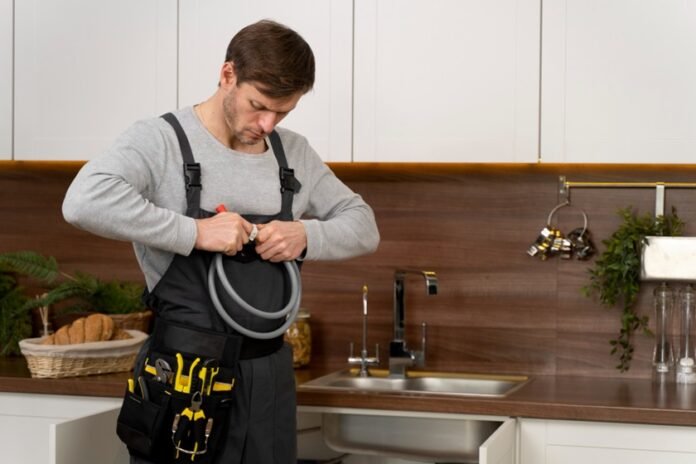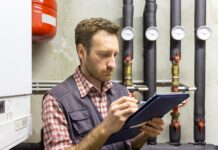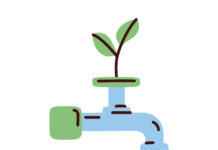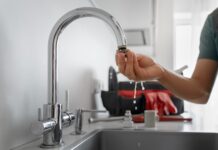The plumbing sector is not far behind in an era where technology has become embedded in every part of our lives. The use of smart plumbing technology is transforming home and commercial maintenance and changing how people interact with water systems. Beyond traditional plumbing, this state-of-the-art of technology provides improved control, efficiency, and insight into water usage and management. Smart plumbing is becoming more and more important in modern homes as we become more aware of the need to conserve resources and find convenience in our busy lifestyles.
Fundamentally, smart plumbing refers to a collection of equipment and systems that optimize, monitor, and control water use through the application of cutting-edge technology. This technology, varying from leak-detecting sensors to systems that enable remote control of water temperature and flow, is changing how we interact with one of the most important resources on Earth. Smart plumbing has become an integrated part of our lifestyle. In this article, we will give you detailed knowledge about smart plumbing that you would like to know. So let’s start.
The Evolution of Smart Plumbing Systems
The potential of cutting-edge technologies to improve conventional plumbing infrastructure is increased by smart plumbing systems. These systems combine automation, connection, and sensors to deliver preventative maintenance, effective water management, and real-time data.
Plumbing used to be mostly about moving water between buildings without much thought given to how it was used. Reliability and efficiency were increased with the introduction of contemporary materials like PVC and improved engineering techniques, but the real revolution started with the development of digital technology.
These days, smart plumbing systems combine sensors, Internet of Things (IoT) gadgets, and advanced software to provide never-before-seen levels of control and monitoring. Proactive maintenance and conservation efforts are made possible by this integration, which permits real-time data collecting and analysis.and that data is very important to improve our plumbing system.
Key Features and Advantages of Smart Home Plumbing Systems
Several essential characteristics distinguish smart plumbing technologies from traditional plumbing systems. These features not only improve the user experience but also make a substantial contribution to efficient water management and conservation.
Automatic Shut-off Systems:
Many smart plumbing systems come with automatic shut-off mechanisms in addition to leak detection. These systems can immediately cut off the water supply to the affected region in the case of a detected leak or burst pipe, preventing major water damage and potentially conserving large volumes of water.
Remote Monitoring and Control:
Smart plumbing enables water systems to be remotely monitored and controlled via cell phones or other devices. This implies that for better water management, you can change the temperature of the water, turn off the water supply when you’re not at home, and keep an eye on usage trends.
Leak Prevention and Detection:
One of the most important features of smart plumbing is its capacity to find leaks, frequently before they develop into serious issues. The plumbing system is equipped with sensors that keep an eye on water pressure and flow, warning facility managers or homeowners of even the smallest deviations. Early detection can reduce water wastage and lessen the cost and damage caused by significant leaks.
Monitoring and treating water quality
Technology is also changing how the plumbing business monitors and treats water quality. Cutting-edge plumbing systems can include sensors that track and continuously measure things like pH, turbidity, and chemical composition of the water.
These sensors enable proactive steps to guarantee a safe and healthy water supply by providing real-time data on water quality. When there are irregularities or pollution, the system can sound an alarm and take protective measures for the users, such as activating water treatment processes or shutting off the water supply.
Water Temperature Control:
To ensure comfort and safety, modern smart plumbing systems provide exact control over water temperature. This is especially helpful in business environments where maintaining constant water temps is essential.
Efficiency Reports and Analytics:
Smart plumbing systems may produce comprehensive reports by gathering data on water usage. These reports offer information on consumption trends, which may be used to pinpoint areas that can be more cost-effective and efficient.
Improved Efficiency in Energy Use
Innovative plumbing solutions maximize the performance of pumps and water heaters, which also adds to the energy economy. In order to modify water temperatures according to user preferences, occupancy patterns, or the time of day, these systems can be integrated with smart thermostats. Intelligent plumbing systems lower utility costs and encourage sustainable living by doing away with needless energy usage, such as boiling water when it’s not needed.
Defense Against Your Plumbing System
Beyond efficiency and convenience, smart plumbing systems can provide improved protection for your plumbing system. Through continuous monitoring of the condition of your pipes, valves, and fittings, these systems are able to detect any problems before they become serious ones. They are able to notify you of pipe corrosion, pressure changes, and leaks. Early detection of plumbing problems can save you money by preventing the need for more costly repairs down the road.
Improved Maintenance Approaches
Regular maintenance is necessary to ensure the long-term health and optimal performance of water systems. On the other hand, regular maintenance methods depend on set schedules or reactive approaches to problems. The way that maintenance is done is being changed by new plumbing technologies that use predictive analytics and data-driven insights.
Artificially intelligent systems are able to identify any problems by analyzing trends and gathering data on multiple criteria while continuously monitoring the state of the plumbing infrastructure. Algorithms for predictive analytics are able to recognize early indicators of blockages, damage to valves, and pipe damage.
Durability and Sustainability
As environmental responsibility gains prominence on a worldwide scale, creative plumbing solutions are essential to meeting regulations and encouraging eco-friendly behavior. These technologies promote compliance with water efficiency laws and green building certifications by enabling improved monitoring and reporting of water usage.
Additionally, water conservation initiatives are helped by advanced plumbing systems, which reduce the environmental impact of water consumption.
Future Developments in Smart Plumbing
Even more advanced and related solutions are expected in the future of smart plumbing. More advanced leak detection systems, AI-driven analytics for predictive maintenance, and increased integration with smart home ecosystems are among new developments that are expected. These developments will keep pushing the limits of water management convenience and efficiency.
With all these values and advantages we can expect that smart home plumbing has a really bright future whether we talk about cost efficiency or with respect to being environmentally friendly.
Disadvantage of Smart Home Plumbing
Now that you are aware of the main advantages of smart homes, you should also be aware of their many drawbacks. Similar to the drawbacks of household equipment, there are certain drawbacks to your smart home system. If you’re debating whether to install a smart home system in your home, you need to be aware of the drawbacks as well. Let’s examine the drawbacks of smart homes.
Price:
One of the primary drawbacks or issues with a smart home system is its expense. The smart home systems are offered by a good many companies, but their costs vary widely. Only a select few can afford something like this. It would be possible for you to establish this system if you had healthy savings and income. Although initially expensive, there will be subsequent cost reductions.
Internet Dependency
The internet is a basic requirement for the smart home system. You won’t be able to take charge of this without a reliable internet connection. There isn’t another method for you to access and manage your system in the event that there isn’t an internet connection. That means the smart home plumbing depends on the internet.
Can someone hack a smart home?
A smart home is made up of many internet- and Bluetooth-controlled devices, such as cameras, security systems, appliances, and more. Engineers and developers are improving the security algorithms and authentication levels of smart home components in response to the progress of smart technologies. The majority of systems these days are password- or biometric-protected. As a result, there is very little possibility that smart homes will be hacked.
Conclusion
Smart plumbing technology is essential to effective and sustainable water management in modern society. Adopting these technologies can help us save a lot of money on utilities, reduce our impact on the environment, and have more convenience and control over our water systems which is very required for the next generation.












